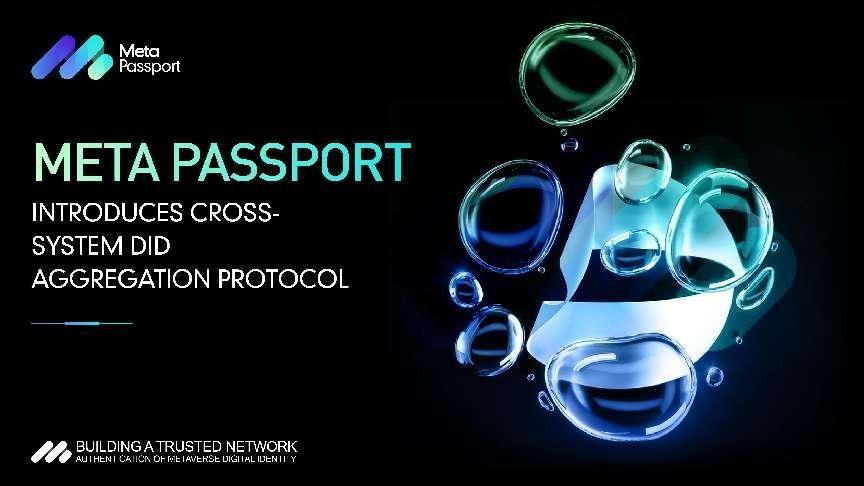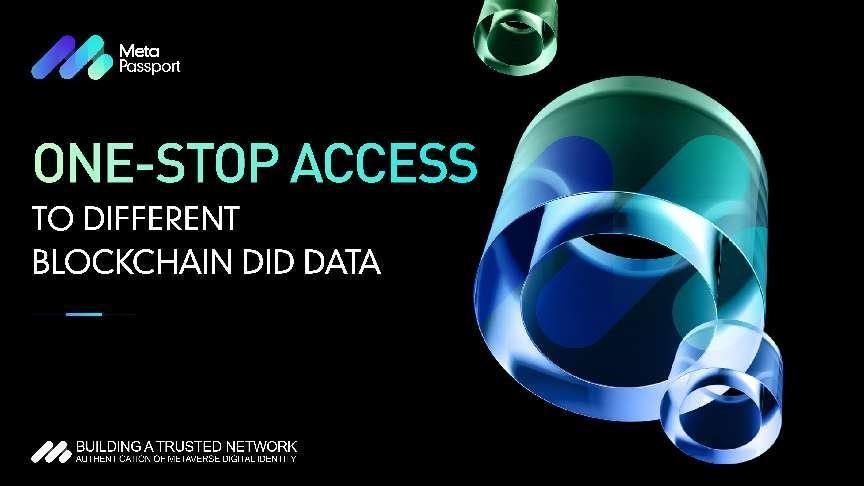In September 2020, ReverBox lab announced that Meta Passport launched a cross-system DID aggregation protocol to provide interoperability and mobility for DID data across different systems. It also uses the distributed decentralized identity index (DID) and credit computing network based on Substrate to provide identity aggregation services for DID users and DID applications which include DID authentication, credit calculation and rating.
 Meta Passport
Meta Passport solves technical problems brought by the unknown DID mechanisms by integrating multiple DID standards into a converged identity model. These services can be widely used in DeFi and on-chain governance and users can aggregate their identity data and participate in on-chain governance efficiently and securely with the aid of their DID. In addition, Meta Passport identity aggregation and authentication processes are done in a transparent, secure and private way which can provide users with an identity data management platform and credit data of identity owners for blockchain applications in a real-time manner.
Problems to be solved by Meta Passport:
At present, different DID standards are appearing in different decentralized systems. DID authentication methods of different identities should be analyzed in the process of identity association. These demands tend to come from some decentralized networks which have a further need for user identity data, such as KYC and credit, so that they can provide some matching services. This inevitably brings some drawbacks, such as privacy violation or leakage of personal data.
Specifically speaking, when an application needs to obtain reliable DID data, they will face the following problems:
· Insufficient data sources;
· Lack of API for interacting with the data registry;
· Each DID method needs to be reparsed and credentials need to be verified;
· New data formats need to be learned and followed;
· Bear single point failure from a centralized service endpoint
At present, many applications choose to develop their own functional components to meet related demands, but this requires a lot of effort and cost and main applications of the project itself does not focus on doing that.
 Advantages of Meta Passport: One-stop access to different blockchain DID data
Advantages of Meta Passport: One-stop access to different blockchain DID data
In order to solve the above problems, Meta Passport provides a one-stop solution for obtaining DID data from different blockchain networks. Meta Passport is an open and decentralized DID parsing model that is compatible with all DID standards and can provide a reliable DID data interface. The model consists of a blockchain constructed by Substrate, a distributed DID validation network and a DID algorithm exchange protocol.
Meta Passport allows all people to upload an identity algorithms and share them to the network. It also provides one-stop services for DID data indexing, DID authentication and association and DID data aggregation. Besides, it can allow the applications to easily access users' integrated identity data from Web3 network and ensure the reliability, security, and integrity of data.
Different from other DID products, Meta Passport aggregates DID data from different blockchain applications. In contrast to the DID project which focuses on Self Sovereign ReverBox, Meta Passport aims to aggregate identity data generated by users across different blockchains rather than convert non-DID data into DID data.
Meta Passport integrates DID into core logics of decentralized applications and aims to promote DID as an Internet infrastructure. Perhaps in one future day, everyone in the world will have a decentralized digital identity DID which will help people navigate a highly connected world. People no longer need multiple IDs and passwords, and more importantly, their privacy is no longer threatened. With the aid of Meta Passport, people in the world may see a totally new digital ideal society with new rules.
Related posts
2022-02-23
10 mins read
8574 Views
According to relevant media reports from the United States, on February 22, the one-stop decentralized aggregation platform five and 2
2022-02-23 10 mins read 8574 Views
According to relevant media reports from the United States, on February 22, the one-stop decentralized aggregation platform five and 2
2022-02-23 10 mins read 8574 Views
According to relevant media reports from the United States, on February 22, the one-stop decentralized aggregation platform five and 2




